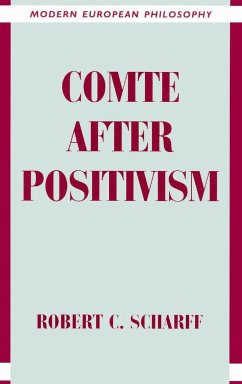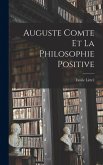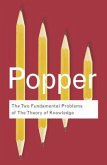This book provides the only detailed, systematic philosophical reconsideration of the neglected nineteenth-century positivist Auguste Comte currently available. Apart from offering an accurate account of what Comte actually wrote, the book argues for the provocative thesis that Comte's positivism actually has greater contemporary relevance now that no one wants to be a positivist. Providing lucid exposition and informed by considerable new scholarship on Comte's work, this book will be valuable to philosophers, especially philosophers of science and those interested in post-positivist developments in Anglo-American philosophy, to a wide range of intellectual historians, and to historians of science and psychology.
Hinweis: Dieser Artikel kann nur an eine deutsche Lieferadresse ausgeliefert werden.
Hinweis: Dieser Artikel kann nur an eine deutsche Lieferadresse ausgeliefert werden.








